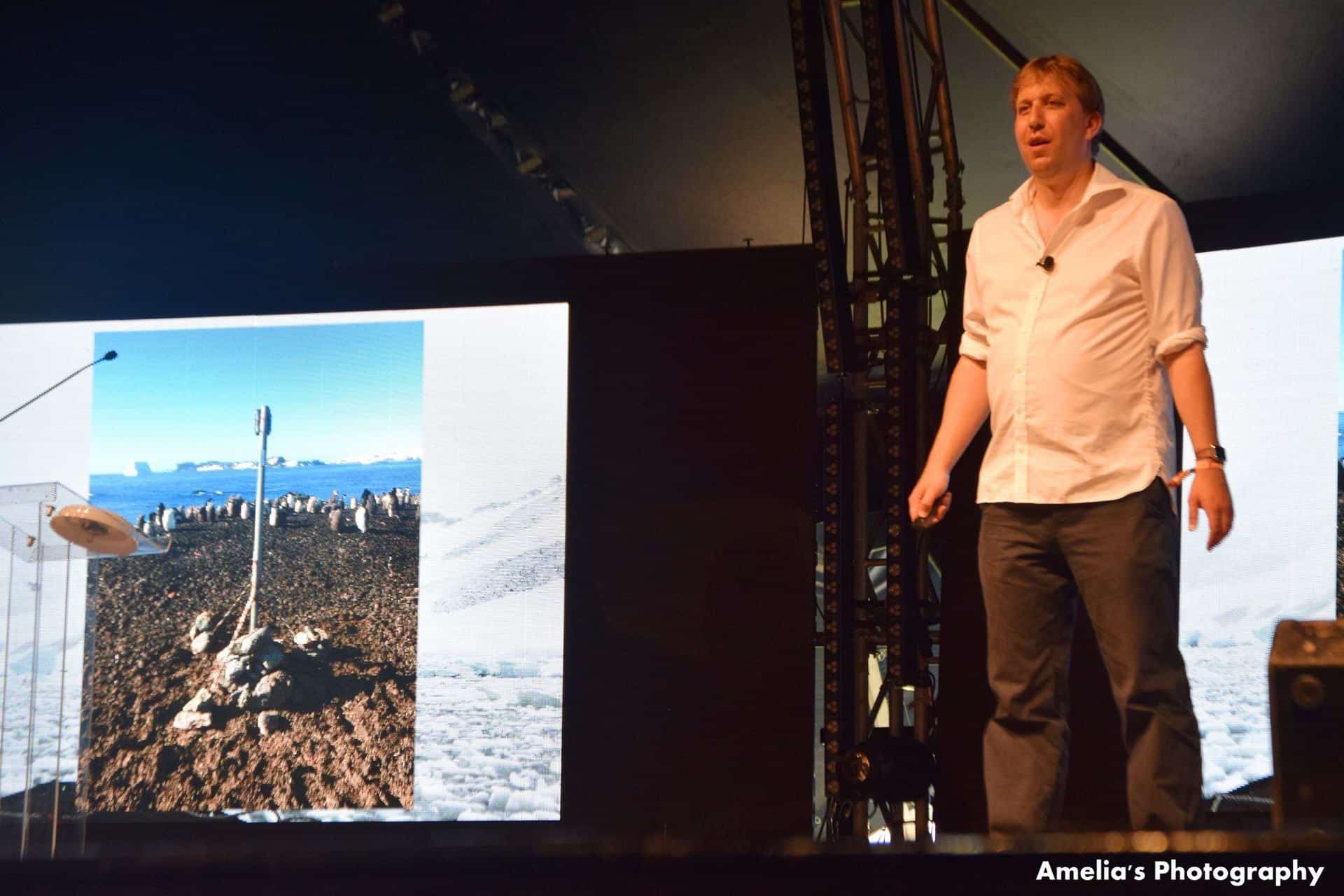Chris Lintott is a professor in Astrophysics and is based at Oxford University!
He is an astronomer and co-founder of both Galaxy Zoo and the Zooniverse that grew from it, Chris is interested in how galaxies form and evolve and how citizen science can change the world!
I would like to thank the wonderful Chris Lintott for this interview!
Here is our interview with him…..

What fuelled your passion for Astrophysics?
“I grew up looking at the stars and wondering about them – I have always been fascinated by the idea that we can look at things that are so far away and try and come up with explanations for what we see. I was also lucky that the school I went to had a telescope – and that they were crazy enough to hand us the keys and let us play with it. That was very inspiring – that chance early on to try and do some real observing.”
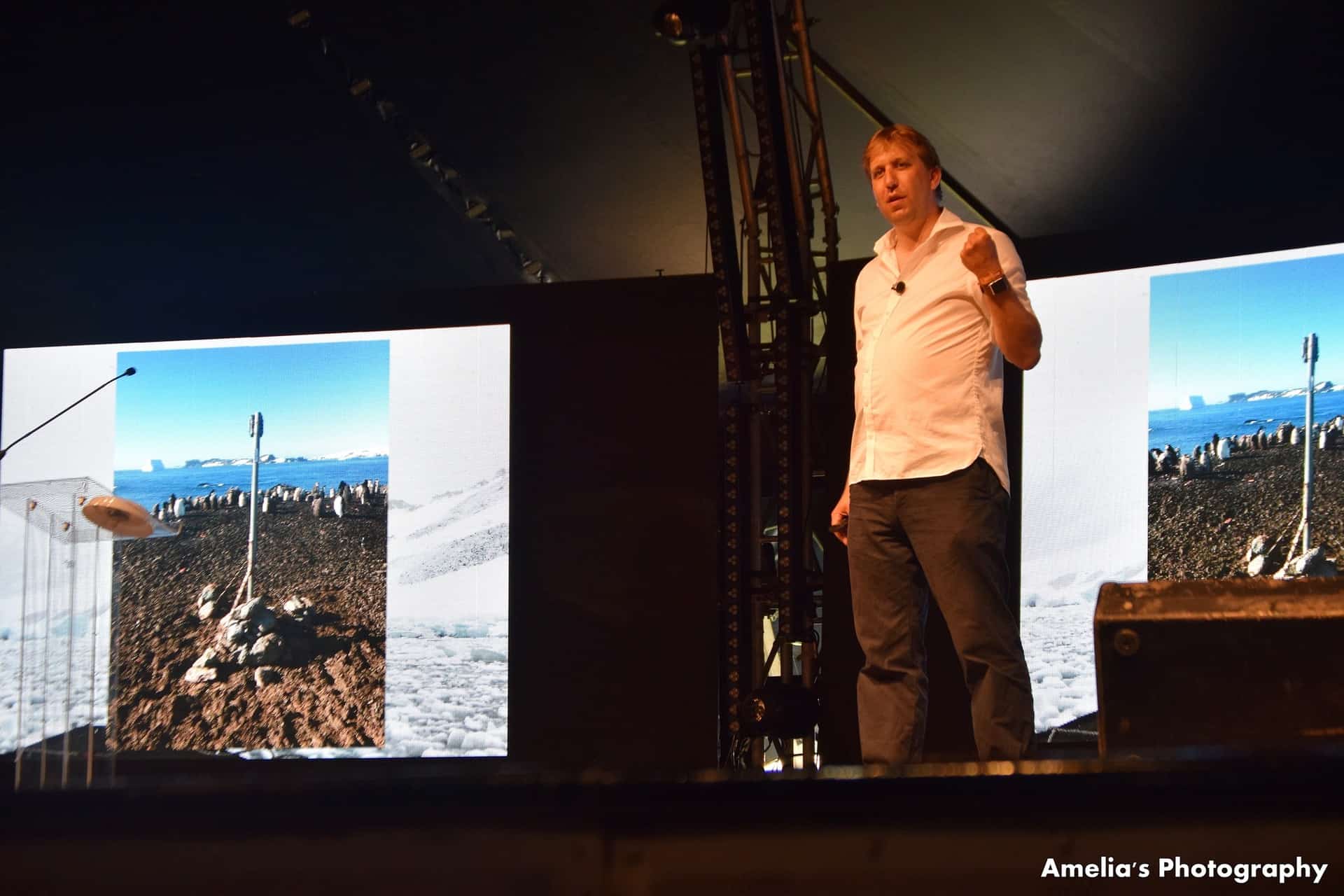
You have met many wonderful people – who would you say has had the most influence on you?
“The obvious answer is Patrick Moore, whose program I’m lucky enough to help take care of. The best things about Patrick came from his love of people – he was always happy to take time to explain things, and all of his programs include explanations for those tuning in to astronomy for the first time and for those who consider themselves expert. I hope we still do that today – if so, it’s because Patrick taught me.”
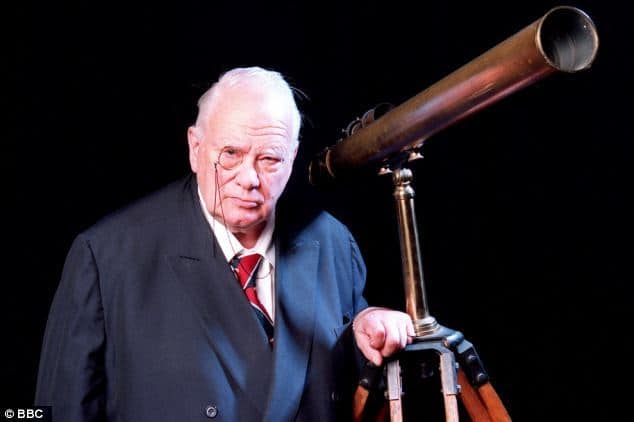
How did Galaxy Zoo start?
“I arrived in Oxford ten years ago as a new researcher, having just got my PhD. I was supposed to be studying how stars form in different galaxies, but that meant sorting through many images of galaxies. A student called Kevin Schawinski had looked through 50,000 but it wasn’t enough, and we came up with the idea of asking the public to help.”
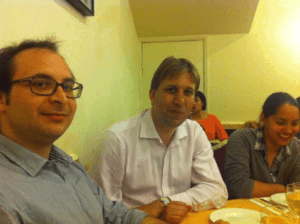
Kevin Schawinski and Chris Lintott!
Source – Galaxy Zoo Blog
You are the co-founder of both Galaxy Zoo and the Zooniverse that grew from it – what is it like to work on two amazing reasearch projects?
“It’s been great fun – and continually surprising. I don’t think I’ve been able to predict what will happen next at any point.”

What is the best part of your job?
“I like the people. I get to work with so many interesting people from around the world, all of whom are doing what they do because they really want to. That makes for some very interesting conversations.”
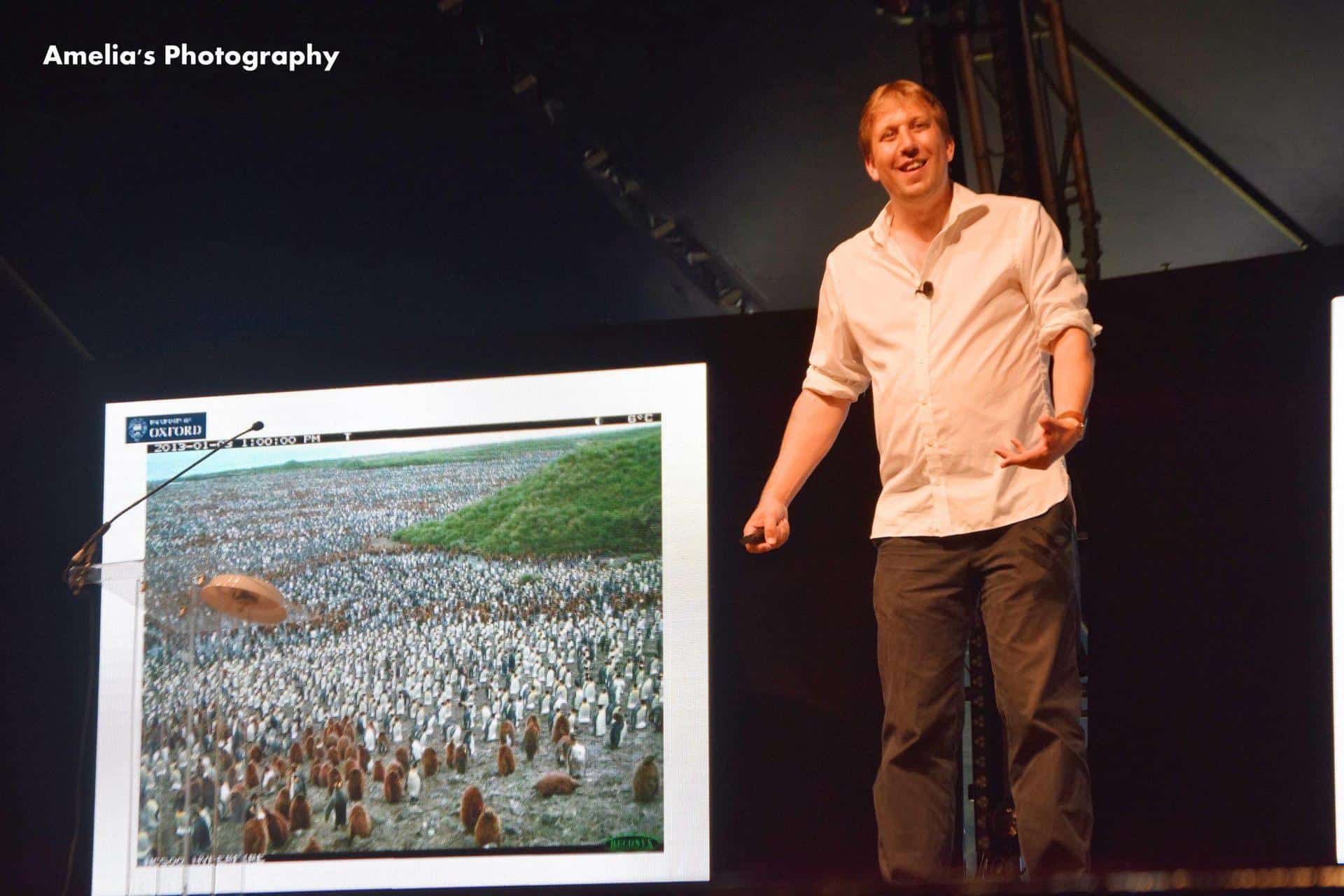
Do you have a favourite Sky at Night episode that you’ve worked on?
“The program we did after the little Philae probe landed on its comet was wonderful. I like the Rosetta and Philae teams very much, and they let us follow along through some very stressful days as they worked out what had happened to the lander.
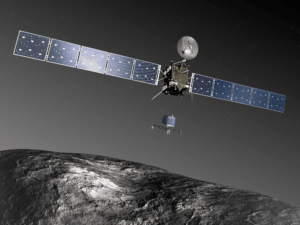
Source – ESA Science
Copyright – ESA–C. Carreau/ATG medialab
I think we made quite a complicated story very easy to follow – and we had to rush to get it ready. I think we finished the program only a couple of hours before it had to be broadcast. ”
What was it like working with the late Sir Patrick Moore?
“Patrick didn’t suffer fools gladly, but he was very generous – with his time, and with his program which he invited the rest of us onto. It was exciting to be around him, because he was always interested in the next idea, and in how to explain it to as many people as possible.”
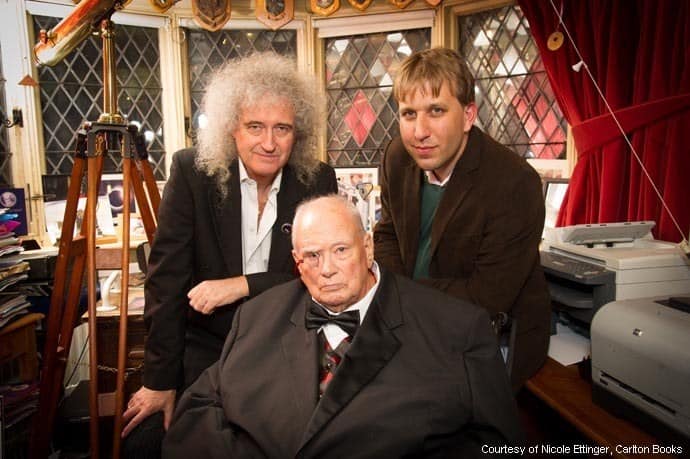
What advice would you give to anybody wishing to pursue a career in Astrophysics and Presenting?
“Don’t worry too much about the career, but try and do interesting things. If you do enough of those, and you have a bit of luck, you’ll find that opportunities to do more come your way.”
